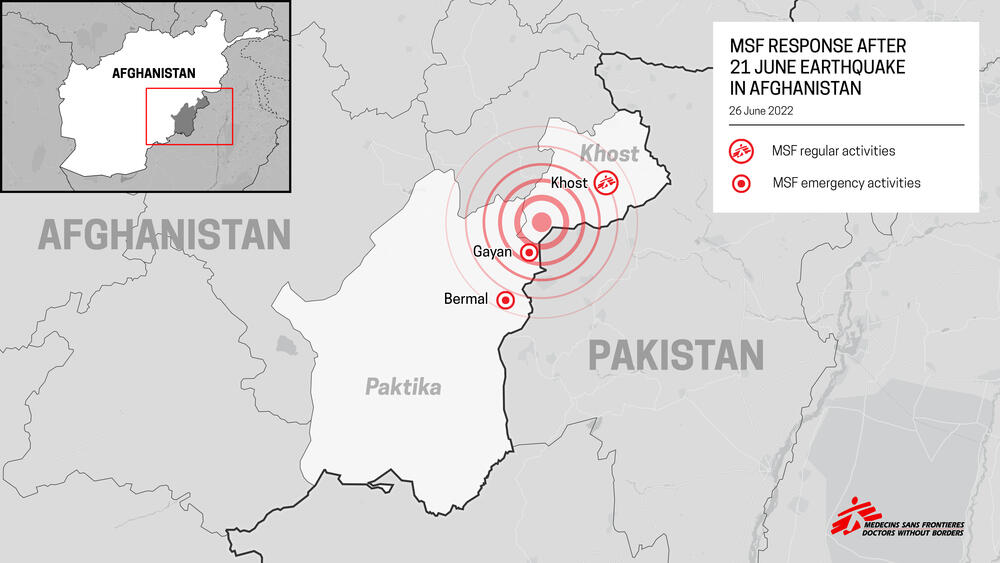Afghanistan: MSF teams providing medical care to earthquake survivors
Following the earthquake that struck Khost and Paktika provinces in Afghanistan on the night of 21 to 22 June, MSF has sent teams made up of medical and logistical staff to the worst-affected areas.
Hundreds of people are thought to have been killed, over a thousand wounded, and many homes have been destroyed and damaged.
Donations of medical supplies and tents have been given to health facilities in Gayan and Bermal, and we are looking at solutions to ensure safe water and adequate sanitation to the population and the health facilities.
“In the early days after an earthquake, trauma injuries such as broken bones and wounds are the biggest concern but now health needs are turning to dehydration and diarrhoea caused by a lack of safe water,” says José Mas, the MSF emergency coordinator.
The situation in Afghanistan is evolving rapidly. Please follow @MSF_Afghanistan for updates.

Help us prepare for the next emergency
MSF in Afghanistan
Decades of conflict have ruined Afghanistan’s economy and infrastructure, and many people rely on humanitarian aid.
Médecins Sans Frontières/Doctors Without Borders (MSF) provides emergency, paediatric and maternal healthcare in Afghanistan, which has one of the highest maternal mortality rates in the world. .
In May 2021, there was a significant surge in violence, with fierce clashes between Afghan forces and the Islamic Emirate of Afghanistan (IEA, also known as the Taliban) claiming thousands of lives and forcing many more people from their homes. By mid-August, the IEA entered the capital city of Kabul and Afghanistan's President Ashraf Ghani fled the country. Throughout this time, MSF teams have continued to provide life-saving medical care to people caught in the chaos.
